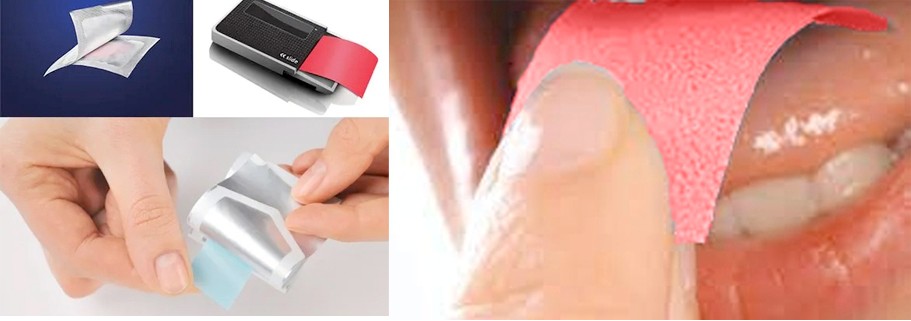The hangover...
Aside from being the title of a pretty good movie, hangovers go back as far as alcohol itself, which is pretty far. Most informed sources put the purposeful production of alcohol at around 7000 BC, with rice wine production in China. However, there is evidence of beer production even earlier – around 11,000 BC in Israel. The history of other types of drinks made from a fermentation process (alcohol) includes Iran (5000 BC), Egypt (3150 BC), pre-Hispanic Mexico (2000 BC) and Western Europe (Celts, 3000 BC). In fact, some type of alcoholic drinks have been produced and consumed by cultures throughout the world for many centuries. So, it’s safe to say that the “hangover experience” is pretty much universal. The word itself was first used as a description of the effects of too much drinking around 1900. It follows that various “remedies” for hangovers, both pre- and post-, have been around for a very long time as well.


The cures...


Limiting the hangover "risk"
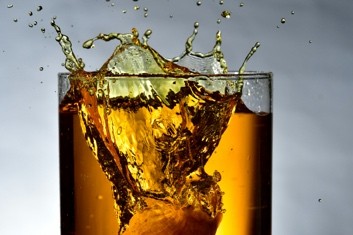

Drink less and more slowly. Consider either having smaller drinks, if that’s an option, or at least drinking them more slowly. A healthy metabolism can process about one drink per hour. That’s the generally accepted standard. So, try to pace yourself to that speed. It’s especially true with carbonated drinks, like champagne. The carbon dioxide tends to speed up the rate of absorption in the bloodstream, and you will feel the effects sooner. The after-effects, i.e. a hangover, are often felt more acutely as well with carbonated drinks.
Drink lighter spirits. If you’re going to drink spirit alcohol, as opposed to wine or beer, opt for lighter, or non-colored spirits like vodka or gin. Tequila could also be included in that category, although it does seem to have a reputation all its own, so be cautious with that choice if you’re looking to limit your hangover. Of course, if your preferred drink is a bourbon, whiskey or rum, consider the advice that follows.
Alternate drinks with water. Swapping out your drink for water every other time is a very good way to both limit the amount of alcohol you consume, as well as stay hydrated, which is one of the main components of a hangover – lack of hydration.
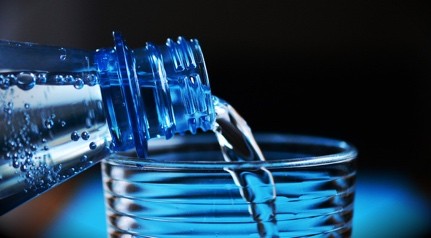

Eat before and during. Having food in your stomach before you start drinking can help to slow the rate at which alcohol is absorbed in your system. It can further help keep your body more in balance with the alcohol if you eat while you are drinking.
Pace yourself. Probably the easiest thing of all to do is just simply slow down. For a generally healthy person with a normal metabolism, the accepted given rate at which the body can process
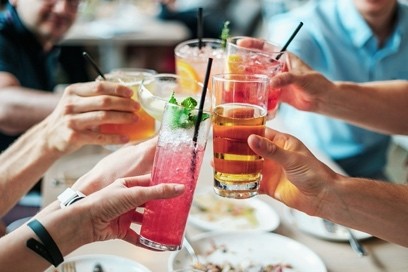

New science for hangovers
– Glutathione
Glutathione is a naturally occurring tripeptide, and is a powerful antioxidant, sometimes referred to as a “master antioxidant”. It helps to neutralize free radicals and supports liver function, as well as promoting skin health. It plays a crucial role in detoxification by stimulating the immune system and maintaining cellular health. It also supports the recycling of other antioxidants like vitamins C and E.
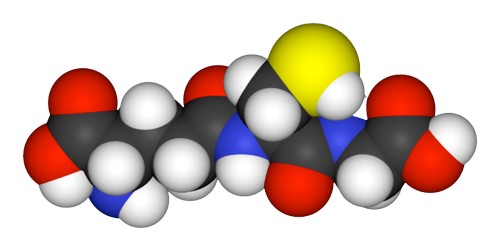

– Dihydromyricetin (DHM)
DHM is a flavonoid, a phytochemical compound produced from plants, that has been shown to promote and improve mitochondrial function. Cell mitochondria are essential to cell energy production and health, and vital to cellular life. The DHM compound is isolated from Chinese vine tea and the Japanese raisin tree, and has been used traditionally in Japanese, Chinese and Korean medicines to treat fevers, infections, liver disease and hangovers. Studies have demonstrated DHM to have antioxidant, anti-inflammatory, anticancer, antimicrobial and lipid and glucose regulating properties.
– N-Acetylcysteine (NAC)
NAC is a supplement form of the amino acid cysteine. It is one of the only supplements with FDA approval. You get cysteine from eating high-protein foods and whole grains, but you can also supplement your body’s cysteine supply with NAC. NAC has antioxidant and anti-inflammatory properties that help reduce swelling and irritation in tissues. NAC also helps the body produce more glutathione naturally.
– Mannitol
Mannitol is a naturally occurring sugar found in fruits and vegetables. It is actually a diuretic, promoting elimination of urine and excess salt, and can help organ swelling. It is also used as a natural sweetener and added for the formulation of effective, absorbable compounds.
Riize Hangover strip
The new Riize Hangover strip utilizes these four effective ingredients in an oral dissolving strip to help with hangovers. Riize has proven expertise in creating compound formulas with maximum bioavailability using state-of-the-art oral strip technology. This convenient, easy-to-use, fast-acting and effective oral dissolving strip will be available soon.
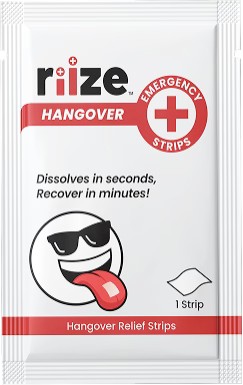

SOURCES
https://www.healthline.com/nutrition/how-to-increase-glutathione
https://www.cancer.gov/publications/dictionaries/cancer-terms/def/free-radical
https://www.mdanderson.org/cancerwise/what-are-free-radicals-a-dietitian-explains.h00-159699912.html
https://www.medicalnewstoday.com/articles/323936
https://www.webmd.com/vitamins-and-supplements/glutathione-uses-risks
https://chezlilika.com/what-is-glutathione/
https://www.cancer.gov/publications/dictionaries/cancer-drug/def/glutathione
https://pmc.ncbi.nlm.nih.gov/articles/PMC5602609/
https://www.sciencedirect.com/science/article/pii/S0753332222001597
https://www.ncbi.nlm.nih.gov/books/NBK594407/
https://pmc.ncbi.nlm.nih.gov/articles/PMC3292407/
https://pmc.ncbi.nlm.nih.gov/articles/PMC7692803/
https://pmc.ncbi.nlm.nih.gov/articles/PMC7696633/
https://www.niaaa.nih.gov/publications/brochures-and-fact-sheets/hangovers
https://www.mayoclinic.org/diseases-conditions/hangovers/symptoms-causes/syc-20373012
https://www.cedars-sinai.org/blog/science-of-hangovers.html
https://today.usc.edu/hangover-remedy-dhm-liver-protection-usc-study/
https://www.verywellhealth.com/dhm-supplement-hangovers-8773629
https://www.webmd.com/vitamins/ai/ingredientmono-1018/n-acetyl-cysteine-nac
https://www.mskcc.org/cancer-care/integrative-medicine/herbs/n-acetylcysteine
https://www.webmd.com/diet/health-benefits-nac
https://www.verywellhealth.com/the-benefits-of-n-acetylcysteine-89416
https://time.com/3958046/history-of-hangovers/
https://www.webmd.com/diet/health-benefits-nac
https://medlineplus.gov/druginfo/natural/1018.html





